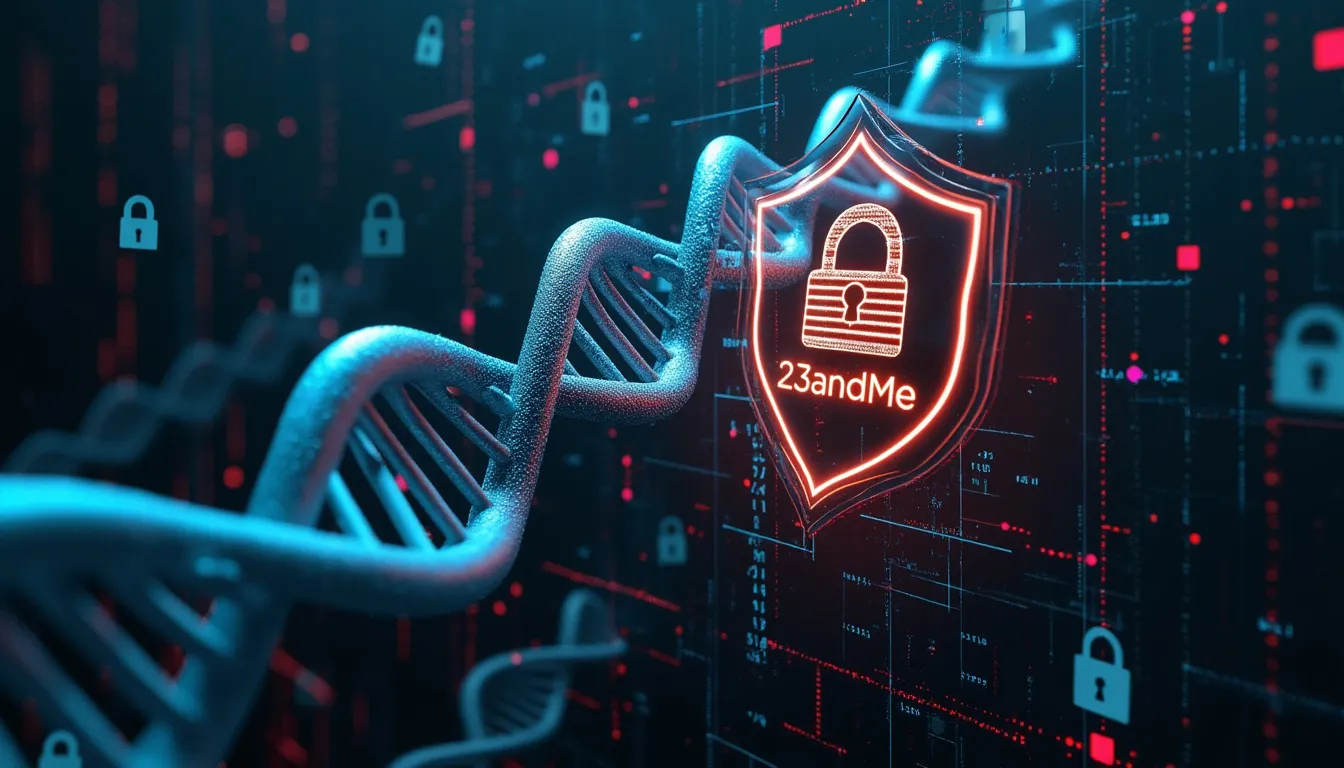In today’s digital landscape, every business sector is experiencing the transformative power of technological advancements with cybersecurity playing a vital role. One area undergoing a significant shift is our understanding of human genetics. Companies like 23andMe shape our view of personalised health and trace our ancestral lineage. However, with these advancements comes the crucial responsibility to protect the most intimate form of personal data – our genetic information.
Understanding The Gravity of Genetic Data Breach
Your genetic data isn’t merely a biological string, but a unique blueprint of your physical identity. When this extraordinary information is mishandled or misused, the potential repercussions are far-reaching and permanent. Unlike stolen credit card data that can be made redundant with a cancellation, genetic data, once leaked, cannot be taken back.
A recent example of concerns over genetic data misuse was the Golden State Killer case. Here a free online database, which hosted genealogical data from firms including 23andMe, was used without the explicit permission of the individuals involved to solve the case. This instance emphasized the urgency of addressing privacy issues surrounding genetic data.
Addressing Transparency and Commercial Use of Genetic Data
In addition to security concerns, it’s equally crucial to address transparency. Ambiguities surround how companies like 23andMe share data with their partners and third-parties. Awareness of how personal data might be used commercially is essential to users as they need to be comfortable before opting in.
Regulating And Protecting Genetic Data
Data security laws are still grappling with how to handle this sensitive form of personal data. Birthing regulations could prove to be challenging due to the globally accessible nature of digital space. However, transparency, informed consent, strong encryption techniques, and proper data anonymization could prove to be effective strategies.
Ensuring User-Centric Security
In the rapidly unfolding tale of genetic testing, companies need to prioritize user-centric security, ensuring that the rights, privacy, and wishes of the individual are upheld. Users must be aware of the implications of sharing their DNA data, and once submitted, understand that there is no taking it back.
Implications For Businesses
Every business operating in today’s world holds the responsibility of protecting sensitive data. Lessons from the trials and tribulations of genetic data security apply to any entity handling private data.
All businesses, especially those on the cutting edge of technological advances, must handle sensitive data responsibly. Innovation should uphold the trail of ethics, security, respect for individuals, and their data.
Reference: Original Article.
For businesses looking to ensure the utmost data privacy, click “Contact Us” to schedule a free consultation for a Fractional CISO services, security assessments and strategic IT security consulting for small-to-mid-sized companies.





